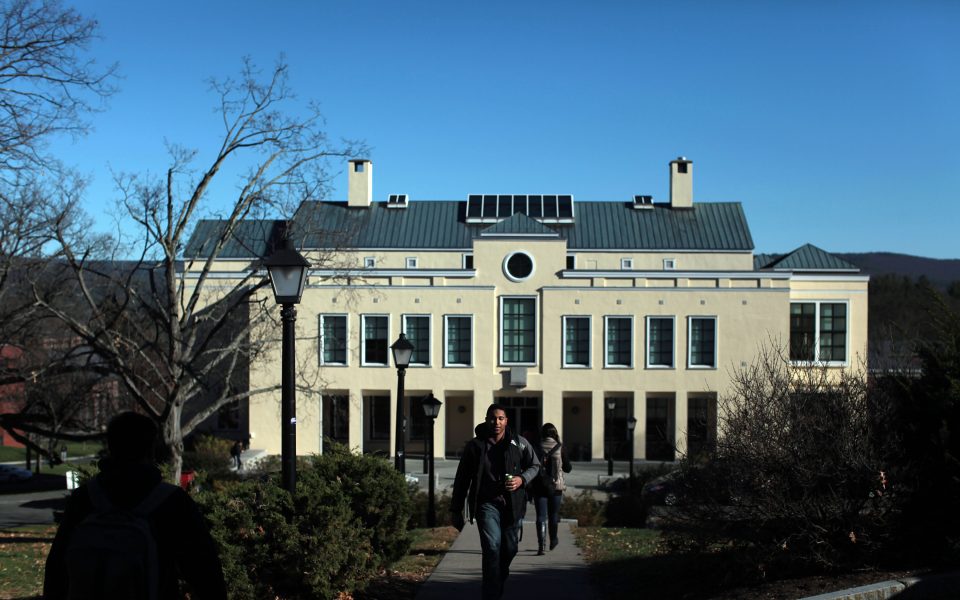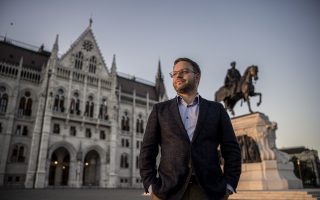Amherst ends legacy admissions favoring children of alumni

Amherst College announced on Wednesday that it would no longer give the children of alumni a boost in the admissions process, becoming one of the first highly selective colleges in the country to abandon a practice that has held back efforts to diversify the top echelons of American higher education.
With the announcement, Amherst, a private liberal arts school in Massachusetts, joined the Massachusetts Institute of Technology, Johns Hopkins University and the California Institute of Technology in the handful of highly selective schools that have opted against having so-called legacy admissions programs.
“We want to be a leader among higher education institutions, in policies and programs that support access and equity,” said Matthew McGann, Amherst’s dean of admissions and financial aid.
About 11% of the students admitted to Amherst in recent years have been children of people who graduated from the college. Most members of this year’s freshman class are students of color, and 18% are first-generation college students.
In the past, McGann said, admissions committees had been encouraged to give some preference to qualified applicants who had a parent who graduated from the college. He added that an applicant’s legacy status was evaluated as one of many factors, and not according to any formula or point system.
Legacy preferences are commonly used at prestigious private universities to give the children and grandchildren of alumni, who are often donors, an advantage in the admissions process. Those universities have said that doing so helps encourage donations that can be used to finance scholarships for others who need them.
But some research suggests that legacy admissions programs do not affect donor funding, and they have functioned as a barrier to diversifying college campuses. Critics say they tend to give white or wealthier students an unfair advantage, ultimately entrenching racial and socioeconomic inequities.
According to a 2018 survey from Inside Higher Ed, 42% of admissions directors at private colleges and universities included legacy status as a factor in admissions. About 6% of public institutions did the same.
Amherst also announced Wednesday that it would expand its financial aid program by about $4 million, to $71 million annually, making additional allowances for families’ expenses and adding more grants for low-income students.
Amherst acknowledged that its deep financial resources, including an endowment of nearly $3.8 billion, allowed it to make this decision. “We are doing what we’re doing because we can, and because we should,” Biddy Martin, the college’s president, said.
In a statement, Amherst said that under the new program, which goes into effect next year, students from 80% of American households would be likely to receive a scholarship covering full tuition if they were accepted and enrolled at Amherst.
Richard Kahlenberg, an education expert and senior fellow at the Century Foundation, said that despite Amherst’s small size — its total enrollment is about 1,850 students — it has long been seen as a pacesetter among liberal arts colleges.
He noted that other schools, including Texas A&M and the University of Georgia, dropped legacy considerations more than a decade ago after court rulings forced them to abandon race-based affirmative action policies, since one is hard to justify without the other. But Amherst’s decision seemed to be more deliberate.
“What’s especially surprising, and also significant, about Amherst’s announcement is that this is an elite liberal arts college,” Kahlenberg said. “And those are the institutions that are most likely to use legacy preferences.”
Recent litigation opened a window into how legacy preferences have affected admissions at Harvard, one of the most selective schools in the country.
A study presented as evidence in a lawsuit over affirmative action found that students of alumni had a stark advantage: Over six admission cycles, Harvard admitted legacy applicants at a rate of 34%, which was more than five times the acceptance rate for applicants with no family connection to the school.
Nationally, calls to end the practice are growing louder, Kahlenberg said, pointing to a group of recent graduates of prestigious schools who are withholding donations in an effort to end legacy admissions. In May, Gov. Jared Polis of Colorado signed a bill to ban legacy admissions at public colleges and universities.
[This article originally appeared in The New York Times.]






